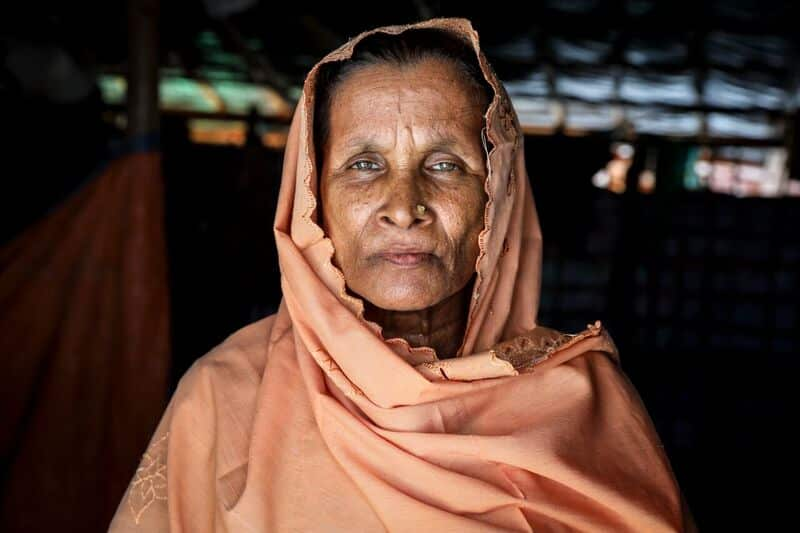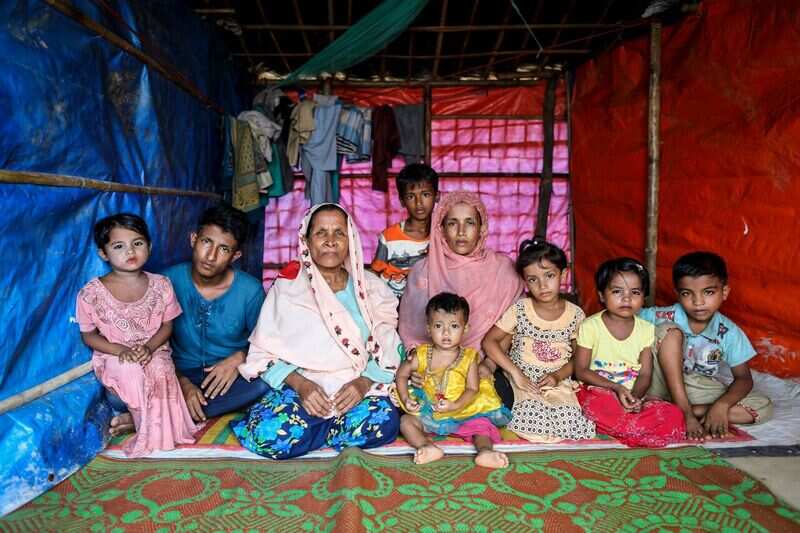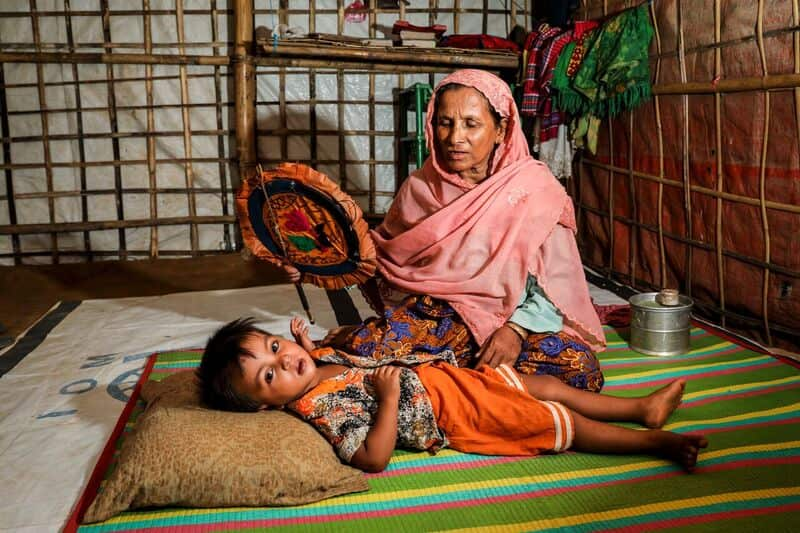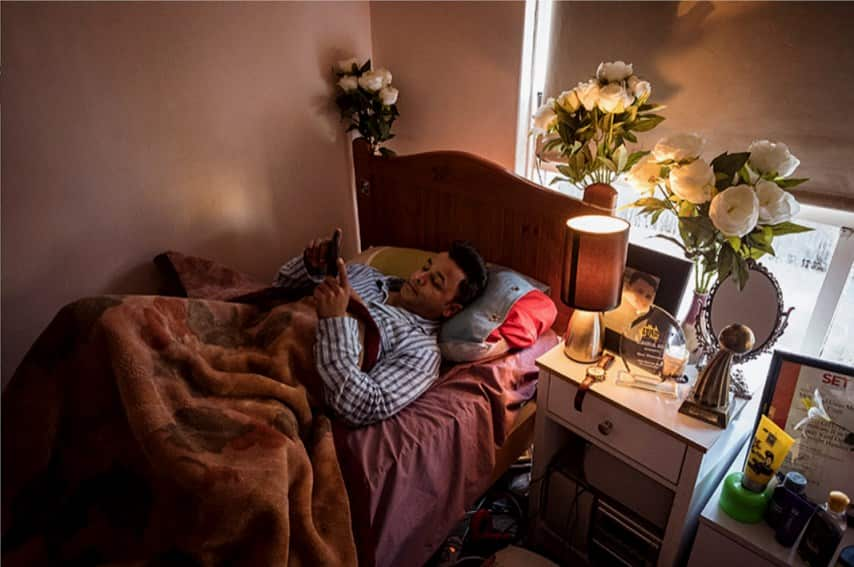***Follow Yunus’ final chapter with from Sunday October 7 – Monday October 15***
Over 70 per cent of children in the Rohingya refugee camps have no access to education according to Save the Children. The figure leaps to 98 per cent for young people over the age of 14 based on new data from the UN Children's Fund.
In the last two months SBS has been documenting Yunus' personal experiences through the live Instagram documentary that show how refugees navigate a new life in Australia.
“I worry for my family. They have a very weak shelter they built themselves. The UN provided them bamboo and plastic, but last year one time the wind came and blew off the roof. Then they stay up all night to hold the roof.” Since fleeing his home, Yunus has survived torture, the loss of loved ones, a boat passage to Thailand and detention to become an Australian temporary resident.
Since fleeing his home, Yunus has survived torture, the loss of loved ones, a boat passage to Thailand and detention to become an Australian temporary resident.

Thangkali Rohingya Refugee Camp Bangldesh (photo by GMB Akash) Source: GMB Akash
“I remember the last time I saw my mum in Burma.
"She was hugging me and crying a lot. But also I cried. Still if I talk about this thing I feel like crying.
"She killed a chicken and gave me chicken and rice and then I left. I left at two o’clock in the morning.
"It took seven hours. I was crying all the way there." When he describes himself in the documentary Yunus says: “We are Rohingya, one of the ethnic groups in Burma. We lived many centuries in Burma, but people don’t know our name.
When he describes himself in the documentary Yunus says: “We are Rohingya, one of the ethnic groups in Burma. We lived many centuries in Burma, but people don’t know our name.

Yanus' mother (photo by GMB Akash) Source: GMB Akash
"We don’t have a written language. Some years back we did have one, but the government refused to teach it in schools, so we didn’t go to write and read in Rohingya language.
"So we only speak.”
Yunus’s nickname gave its name to the documentary #SheCalledMeRed as his grandmother used to call him “Lalaya” which means “red” because he used to get sunburnt when he was little. Born sometime in 1990, is a Sunni Muslim and wants to share his story for his family “and also for the Rohingya people, those people suffering in the Bangladesh refugee camps, and in Malaysia, Indonesia and Thailand, and in India, in Saudi Arabia. They have no documents. They work hard and they hide”, .
Born sometime in 1990, is a Sunni Muslim and wants to share his story for his family “and also for the Rohingya people, those people suffering in the Bangladesh refugee camps, and in Malaysia, Indonesia and Thailand, and in India, in Saudi Arabia. They have no documents. They work hard and they hide”, .

Yanus family at the refugee camp (photo by GMB Akash) Source: GMB Akash
After a long journey and being captured by Australian Navy and taken to detention, Yunus finally arrived in Melbourne. He went to his English class near Flinders Street every Sunday.
“I bought a phone, a Nokia. When it’s a day there is coverage in the village, then you can call them. I got a missed call from my mum and I called back.
"I said, ‘My mum, I'm so happy here. We have a medical card, bank card, proof of identification card.' We never see these kinds of cards in my country. I was so happy, at that time.
"I joined Facebook and I looked at everything. For my future, I wanted to learn English. English, English, English, English, English, English. Whenever I found any books I read English.”

Yanus' mother talking with him over the phone (photo by GMB Akash) Source: GMB Akash
The financial pressure on refugees is huge as whole families overseas depend on their income. isn’t the exception:
“Sometimes I send $400, sometimes $500 a month for my mum, pay my bills - rent and food, and car - and I’m finished. I’ve got only $40 in my bank account.
"When I speak to my family, I laugh with them; I don’t tell them I had a hard day and I don’t have money. I keep it to myself. Sometimes my family cries a lot. They are sick.
"They say, 'I can’t do this, I can’t do this'. Yesterday one of my aunties sent me a voice message. She has been four days now in hospital. They don’t have money. How many people can I look after?"
Acute respiratory infections, unexplained fever and acute watery diarrhoea are now the three leading illnesses in the camps.

Yanus mother taking care of a child in the camp (photo by GMB Akash) Source: GMB Akash
In the solitude of his room, away from his family, Yunus remembers his father and his description paints a world we can only imagine through his words:
“I can’t remember my father’s face. We don’t have photos. I only have my memory. My father had a farm, six and a half acres.
"In the summertime we grew chillies and beans and in the monsoon season we grew rice.
"In the summertime we came back home in the dark, at nine o’clock, or even midnight.
"We don’t have a light there but when the moon is shining you can work by the moon."

Yunus in his bedroom in Melbourne (photo by Chris Hopkins) Source: Chris Hopkins
In a recent interview with Yunus said: "If my story can be read by people and increase the awareness of our situation this will help the plight of our people, and the people in the camps will be helped to obtain identification in Burma."
------------------------------
This Sunday 7th October ” will release another chapter of the Instagram documentary, where Yunus attempts to settle in regional Victoria and fulfil the obligations of his visa.
Follow Yunus’ final chapter with @sbs.online.documentaries on Instagram from Sunday October 7 – Monday October 15.

